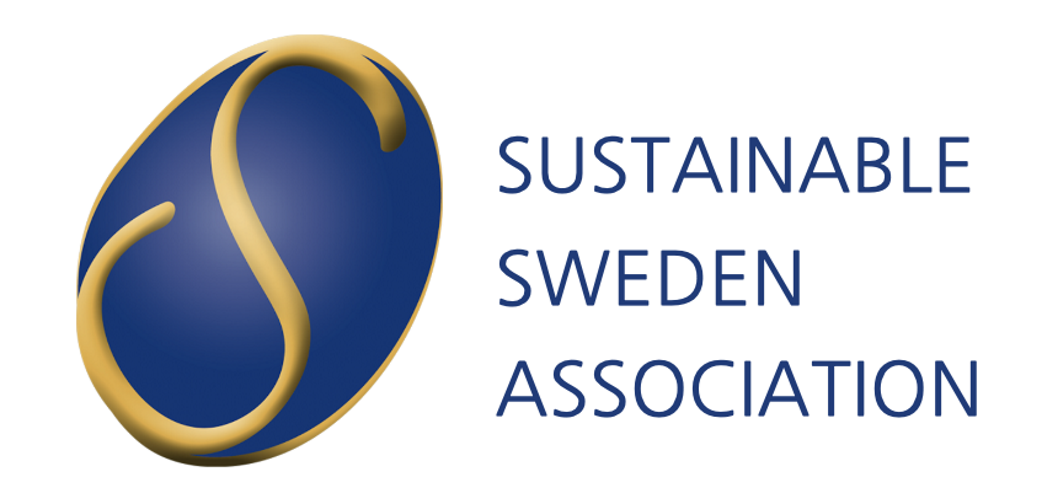Becoming an Ecomunicipality is a beautiful but not so easy journey. What are the main steps to follow ? Which method would be applied ? How to make the project work in the long term ? In our article series “Ecomunicipality case study”, we propose you to discover the experience of municipalities that have chosen to start this journey. This second episode is focused on the implementation of the Framework for Strategic Sustainable Development (FSSD) in municipalities. We interviewed Lisa Wälitalo, author of a thesis on support for cross-sectoral work for sustainability for municipalities and regions, based on the FSSD.
Portrait of Lisa Wälitalo
Lisa Wälitalo studied environmental science at Umea university. During her studies, she met Torbjörn Lahti, the initiator and former coordinator of the Ecomunicipality movement. She became his intern and started to get interested in strategic work for sustainability. After her studies, she became an environmental and health inspector and later a sustainability strategist at Karlskrona. There, she worked partly at the ecomunicipality office hosted by the city. After that, she started to work with regional energy and climate issues.
She is now a doctoral candidate at the Blekinge Institute of Technology (BTH) in Karlskrona. During 2022, she will finish her thesis Methodological support for cross-sectoral municipal and regional strategic work for sustainability, which aims to investigate how municipal and regional practitioners can be supported to enhance work for sustainability.
FSSD implementation model : research questions and results of Lisa Wälitalo’s thesis
“The research issue came to me”, explains Lisa Wälitalo. “When I was working at Karlskrona municipality, we realized that the city needed more support to adapt sustainable principles and to apply them in practice. The municipality and BTH asked me if I could do research work on this subject. I said yes !” Indeed, it can be quite hard for municipal and regional administrations to coordinate sustainable actions through a systemic and strategic approach.
Thus, Lisa Wälitalo’s thesis aims to answer 4 main research questions. The very first one is about the barriers and enablers : what are critical barriers and enablers for effective transitioning towards sustainability in municipalities and regions ? According to the research work, the main barrier is lack of political leadership. “The leaders do not really see the need for a strategic approach, like the FSSD”, confirms Lisa Wälitalo. “They are, understandably, occupied with their own work and do not have time to learn about and implement it”. She also identified general barriers such as the lack of competence, of integration, of clarity, of financial support etcetera and developed diagnostic support for context specific barrier and enabler identification.
The second research question aimed to understand if introducing the FSSD implementation model could be an efficient way to support cross-sectoral strategic work : to what extent can an existing preliminary implementation model for multistakeholder co-creation and co-learning for strategic sustainable development be helpful for realizing transitioning towards sustainability in municipalities and regions ? Two other issues arise from this main one : what strengths and weaknesses of the preliminary implementation model can be identified in real-life use in municipalities and regions? What barriers and enablers can be identified for application of the preliminary implementation model in municipalities and regions ? “ We realized that the municipalities like this method, but also that it does not fly on its own if there is no internal capacity “, says Lisa Wälitalo. “Municipalities need both active participation and leaders’ commitment to make the concept work in the long term, as well as several additional support”.
Consequently, the third question addressed the additional support needed by the municipalities : based on the answers to the research questions 1 and 2, what complementary support is needed for municipal and regional practitioners to enhance cross-sectoral strategic work for sustainability ? Lisa Wälitalo made a list of those supports : a presentation of the ‘business case for sustainability’, detailed FSSD instructions, diagnostic for barrier and enabler identification, database with best practices, templates and manuals for the administrators, and so on.
The actual research project formally ended in March 2022 but work got delayed due to the pandemic and Lisa Wälitalo recently started to work on a fourth research question : what is required for long-term application of the FSSD in line with the implementation model and additional support, so that municipalities and regions systematically can transition towards a sustainable version of themselves? She is currently working with municipalities in order to bring some answers to this issue.
Application of the FSSD in three ecomunicipalities
In order to answer her research questions, Lisa Wälitalo worked very closely with municipalities and regions. “In the first phase, I’ve done participatory action research throughout ABCD procedures in around 10 cities and territories”, she says. “Now, I focus on 3 to see how far we can go : Åland, Hudiksvall and Karlskrona”.

Åland
Åland is an archipelago located between Sweden and Finland, in the baltic sea. It is an autonomous province of Finland even though its main language is Swedish. The territory is really committed to sustainable development : it wants to be fully sustainable by 2051.
As part of her thesis, Lisa Wälitalo started to meet the regional government in 2016 to discuss what were their objectives. Then, she participated in a public conference for the people at Åland. She introduced the project and gave them some training about the ABCD procedure. She also held a participative workshop. “I was working with smaller groups on baseline analysis. I did a few ABCD procedures on specific areas, such as developing a sustainable food system strategy”, explains Lisa Wälitalo. This work lasted around 6 months. After that, she took a step back from the project and later came back to evaluate and learn from their experiences (if the FSSD principles are still applied or not, if the method is efficient in the long term, and so on).
“With Åland, I’ve learned that it is better to have good preconditions, such as a strong political support, to implement an efficient framework for sustainability”, concludes Lisa Wälitalo.
Karlskrona
Karlskrona is a municipality located in southern Sweden. This territory is at the very heart of Lisa Wälitalo thesis. Firstly, Karlskrona chose to implement FSSD principles in a specific area : social sustainability for children and the youth. They started with an ABCD procedure on this subject. All the political parties took part in several workshops held by Lisa Wälitalo. The schools were also integrated in the project that lasted a bit over a year.
After learning the ABCD method, Karlskrona wanted to implement it in the service department in charge of all the basic systems needed in the territory (food, water, transport, waste, and so on). Several small ABCD procedures were launched in this departement. Lisa Wälitalo accompanied them : “the management team of this department wanted to have sustainable thinking integrated in their work. My work was to support them, to teach them to perform ABCD procedures on their own”.
“One of the main conclusions I’ve learned with Karlskrona is that one way to approach the implementation of the FSSD is to start with specific focus areas that create ripples on the water which gradually can involve more political leaders and lead to broader application”.
Hudiksvall
Hudiksvall is a Swedish municipality next to the baltic sea. In the beginning of the research project they wanted support to implement sustainability into their comprehensive plan. “During that time they understood that FSSD can be a complex method to apply and that they had to build internal capacity”. To actively engage leaders to make strategic decisions, she started to do a pre-evaluation about the city’s work to see what strategic sustainability practices were already good and what could be improved. This was then presented and discussed at a workshop with political leaders, to have their opinions on her conclusions. “This led to a very nice discussion about how to proceed and how they could integrate sustainability thinking and build capacity long-term!” details Lisa Wälitalo. This first step also led to a strategic decision to carry out a full ABCD procedure on social sustainability in the local territory.
The example of Hudiksvall underlines the need for additional support and leaders’ active participation to efficiently implement FSSD practices in territories.
Implementing FSSD : Lisa Wälitalo’s advice
Thanks to her work with municipalities, Lisa Wälitalo developed some advice for territories that want to apply the FSSD and engage in the ABCD method :
- To educate themselves. “They need to read some material, to watch videos, about FSSD”.
- To gather a core team and to engage leaders. “It is very important to have a strong core team. If leaders are not interested, perhaps it is possible to start small ABCD procedures to show them how it works”.
- To learn by doing. “Learning by doing is an important part to implement FSSD. They can also learn from feedback from other municipalities. Everyone is helped by inspiring examples”.
- To know that they can not do everything at once. “They have to go step by step, to be pragmatic, to make some choices within the systemic perspective, but always with the sustainable vision in mind”.
“It would be great if we can work with many more cities, municipalities and territories to implement the FSSD ! We need to continue to develop guidelines, to support and learn from practitioners’ experiences, and to have fundraisers to follow it up. It would also be interesting to develop indicators to evaluate strategic and systematic work for sustainability”, concludes Lisa Wälitalo.
Resources :
Picture credits : Creative Commons Attribution-Share Alike 4.0 International license.

